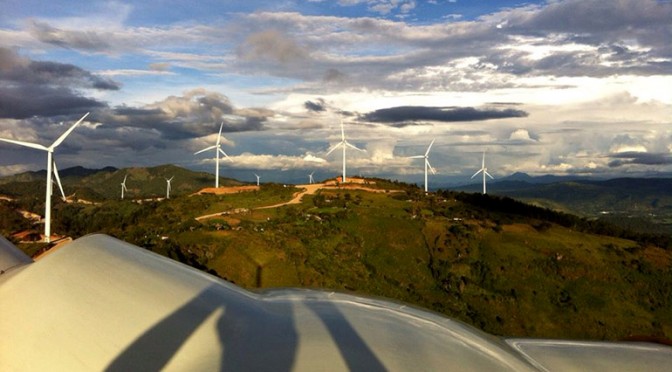In recent years, Honduras has embarked on a transformative journey towards renewable energy, with wind energy taking center stage. This shift is revolutionizing the country’s energy landscape, providing a sustainable and economically viable alternative to traditional fossil fuels.
Honduras, a Central American nation, is richly endowed with renewable energy resources, particularly wind. The country’s topography, characterized by high mountains and vast plains, makes it an ideal location for harnessing wind energy. The strong and consistent winds blowing across the country provide a reliable source of power that can be harnessed to generate electricity.
The push towards wind energy in Honduras began in earnest in the early 2000s. The government, recognizing the potential of this abundant resource, implemented policies and incentives to encourage investment in wind energy projects. These initiatives have resulted in a significant increase in the number of wind farms across the country, with the installed capacity of wind power reaching 311 megawatts by the end of 2019.
The Cerro de Hula Wind Farm, the largest in Central America, is a testament to the country’s commitment to wind energy. The 126-turbine facility, located just south of the capital city, Tegucigalpa, has a capacity of 102 megawatts and provides electricity to approximately 50,000 homes. The success of this project has spurred further investment in wind energy, with several other large-scale projects currently under development.
The shift towards wind energy is not only transforming the energy landscape in Honduras but also bringing about significant economic and environmental benefits. Wind energy is a clean, renewable source of power that does not emit greenhouse gases or other pollutants. As such, it plays a crucial role in the country’s efforts to combat climate change and reduce its carbon footprint.
Moreover, wind energy projects create jobs and stimulate local economies. The construction and operation of wind farms require a workforce, providing employment opportunities for local communities. In addition, the revenue generated from these projects can be reinvested in the local economy, further promoting economic growth and development.
The transition to wind energy also enhances the country’s energy security. Honduras, like many other developing countries, has traditionally relied on imported fossil fuels for its energy needs. However, the volatility of global oil prices and the environmental impact of fossil fuels have made this dependence unsustainable. Wind energy, on the other hand, is a domestic resource that is not subject to international market fluctuations, making it a more stable and secure source of power.
Despite the progress made, challenges remain in the pursuit of wind energy in Honduras. These include technical issues related to grid integration and storage, as well as social and environmental concerns associated with wind farm development. However, with continued investment and policy support, these challenges can be overcome, paving the way for a sustainable energy future in Honduras.
In conclusion, wind energy is transforming the energy landscape in Honduras, offering a sustainable and economically viable alternative to traditional energy sources. The country’s commitment to harnessing this abundant resource is not only reshaping its energy sector but also contributing to economic growth, environmental sustainability, and energy security. As Honduras continues on this path, it serves as a model for other countries looking to transition to a renewable energy future.


